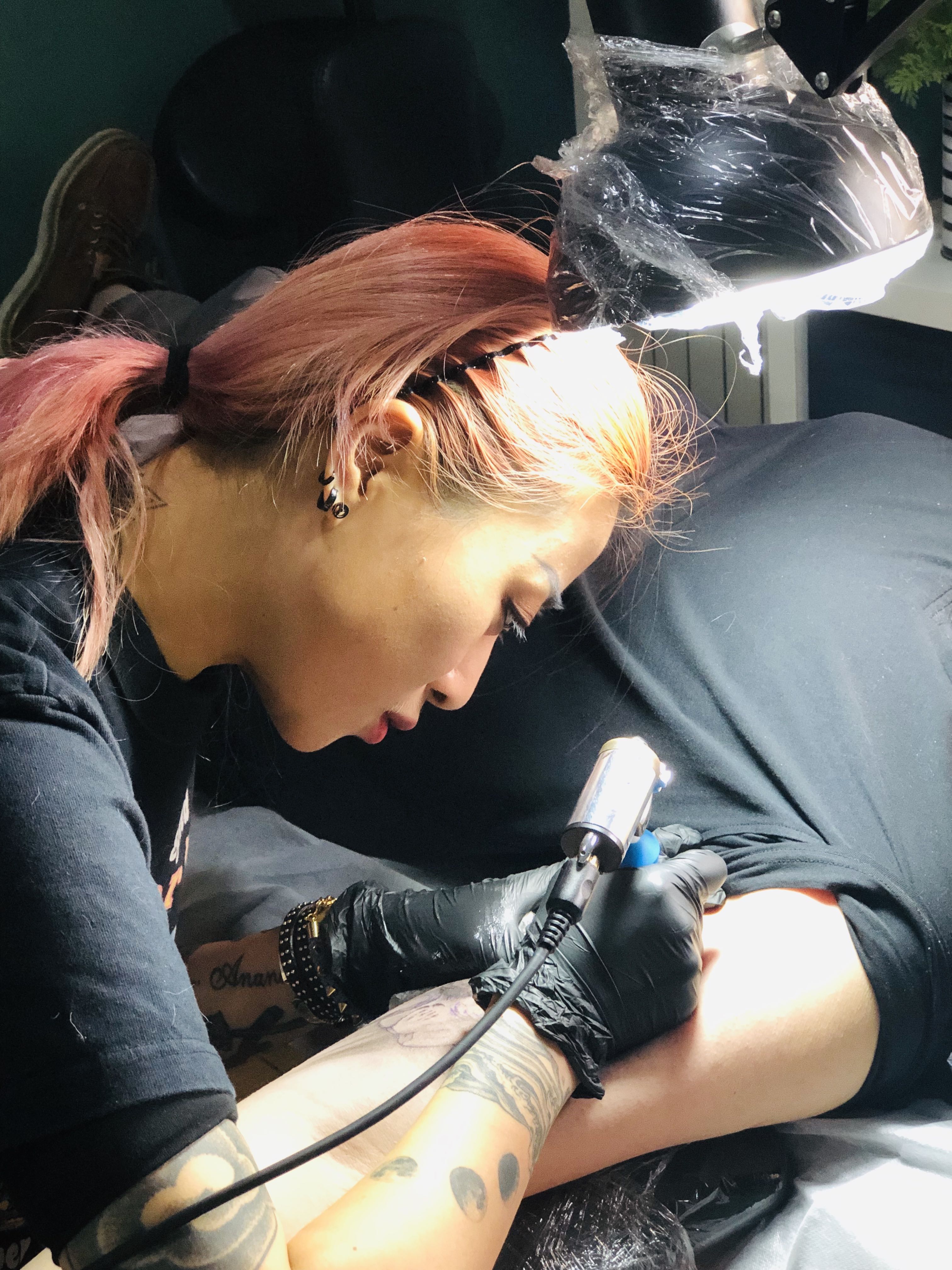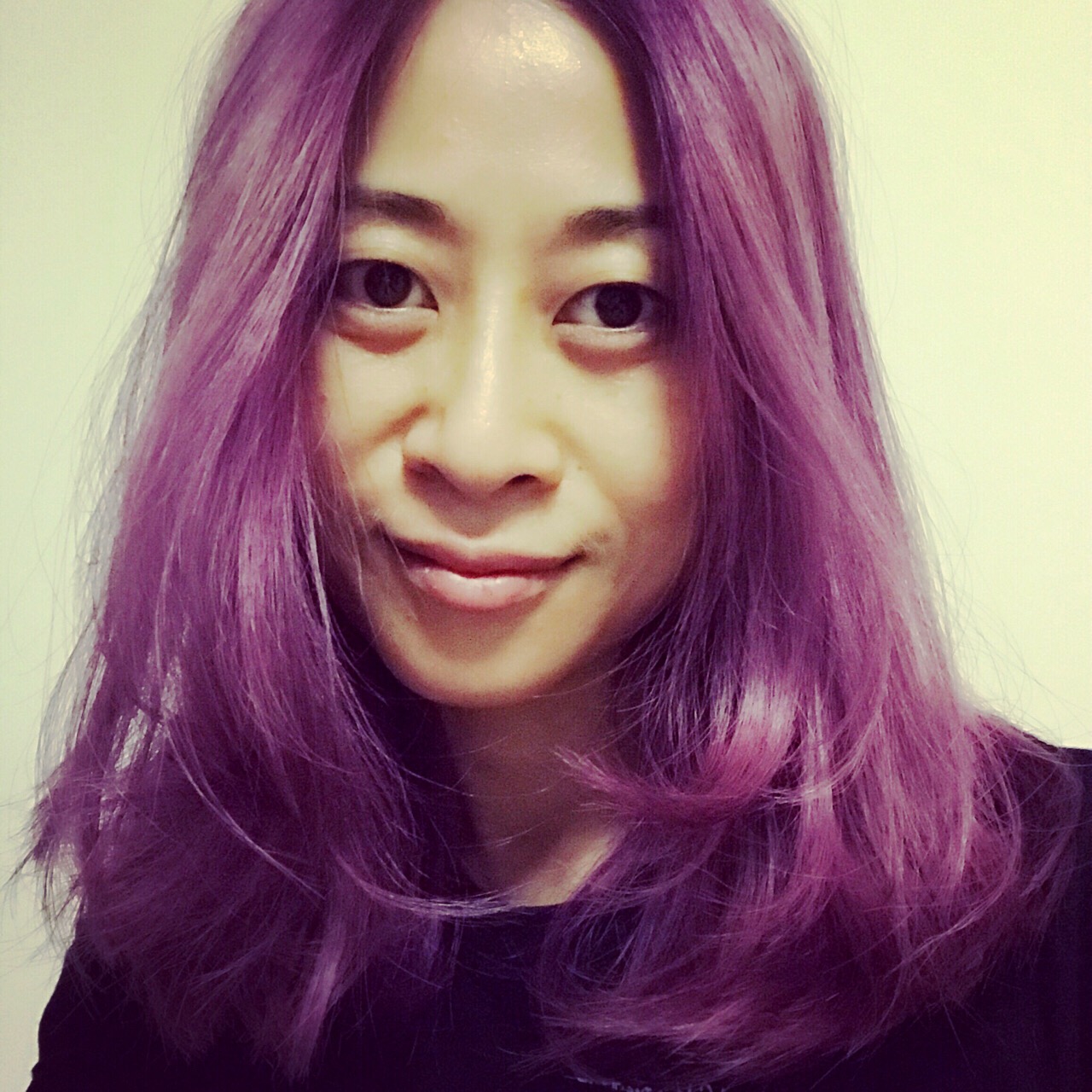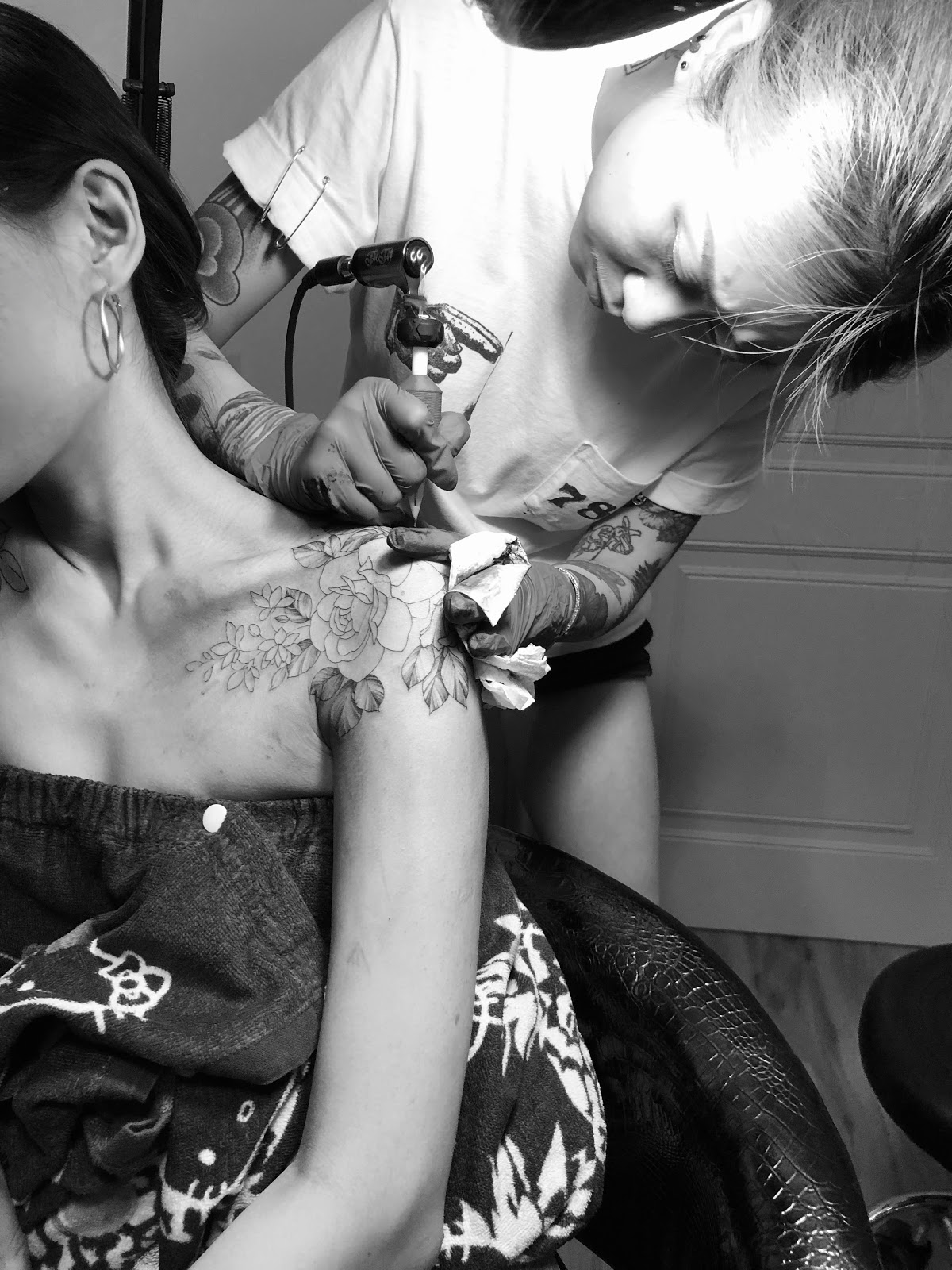Ma Jia is a brilliant tattoo master whose artistry represents a new generation of Chinese youth. Unlike many before her, she was brave enough to realize her ambitions and dive into the tattoo industry. Till now, she organized her own studio in the center of Beijing.
Ma Jia has dropped the architect field to achieve her dream and now she is ready to share her experiences being a tattoo master in China.
1. When did you decide to become an ink master and why did you do it?
Before coming into the field, I was an architect for a pretty long time, where I learned how to design things. However, I realized that profession limited my personal development. At that time, I really enjoyed tattoo art and felt like it was time for the fresh start.
2. I have heard that many Chinese parents, and probably the whole older generation, are quite critical about doing tattooes, not to mention becoming a tattoo artist. From your perspective, what are the actual reasons for that?
Well, when I had just told my parents about my decision to become a tattoo artist, they didn’t really understand my choice. You see, the engineering or architecture industry seemed like the best options for me as it offers a constant salary. And on a whole, just gives you a higher social position.

Yet, the attitude towards tattooes are changing dramatically, especially for Chinese born after the 90s. City youth have enough courage to claim their independence from other’s opinions or critics.
People from rural areas aren’t really into tattoos as most of them don’t actually understand or support it, but youth from Shanghai or Beijing are definitely much more into it.
3. Could you describe what kind of Chinese people prefer getting tattoos? Is it connected to gender or other factors such as social status or certain work industry?
There are no clear gender proportions that can describe my customers. Most of them are from all sorts of industries, they might work at the bank or service sector. Probably, if they are not allowed to show the tattoo at their work, customers will choose less visible areas such as back or legs.

4. Where did you learn to be a tattoo artist and do you still keep learning? How?
I started practicing drawing in childhood. Furthermore, the industry I was involved in also covers art in some way. After I quit my architecture career, I got in touch with an experienced tattoo artist, who guided me through this new profession for a year. As I keep studying, I get to meet lots of professionals and we definitely inspire each other.
5. Do you think there are many schools in China that teach the art of tattoo?
Definitely! As the tattoo industry keeps gaining popularity, so does the mastery of the tattoo skill over the country. As an individual, you have a choice to find a personal teacher who might share his/her own secrets with you, or to attend a school with 20 other students.
6. Western and Chinese tattooes used to be a lot of different. As I understood, only 50 years ago most of the people preferred going for classical Chinese landscapes, dragons or snakes. Have customers’ choice changed or does it still follow the same tendency?
The tattoo choice is more connected to the style of the tattoo they want, rather than a certain picture. Like, I am personally attracted to “dark style” works. So, people who come to my studio have probably already checked out my style and are looking for something similar.
Still, there is no one “ best tattoo” that people choose, all tattoos are quite individual depending on what the person actually wants. And, yes, some people still prefer to go deep into their roots and reflect it on their skin, but most the customers search for something they actually like.
Actually, phrases in English, French or Italian are also quite in demand. Foreigners, on the contrary, prefer getting Chinese characters or their names in Chinese.
7. How much money can a tattoo master earn in China and what factors does it depend on?

That all depends on how famous the artist is or what the quality of their work may be. For example, when having lunch, you might spend 100 RMB, but not all people have that much money.
So they will find a place where the price is 10 RMB for the meal. Of course, it is understood that the quality of these two meals are different because of the difference in price. Well, the same concept applies to the tattoo industry.
A fixed price doesn’t exist, so the income varies. Normally the price is counted by working hours. And let’s say if the artist’s name is well-known, he can demand for several thousand RMB per hour.
8. Can you draw and is it necessary to have this skill to be a tattoo artist?
100 percent necessary. Those who can’t or are unwilling to learn to do so just limit their art opportunities, as they have to copy the work of other tattoo masters.
9. Some people feel the word “art” is not the best description for the tattoo industry, as it’s not creating but copying. What do think about it?
I don’t think we can call the tattoo industry “pure art”, as tattooes are pretty much limited by the materials we use. I prefer to call it a combination of art and craft.
10. What do you hope for the future of the tattoo industry?
I hope that the tattoo industry will develop faster. The tattoo craft is stuck for now, as most of the tattoo artists in China don’t want to create the original work but prefer copying.
I also believe that quality comes before anything else. Still, some masters slack their work so to earn more rather than create something worthy.
Instagram: v_tatto_x_blackwork
WeChat: hi_hidema
[zombify_post]


0 Comments